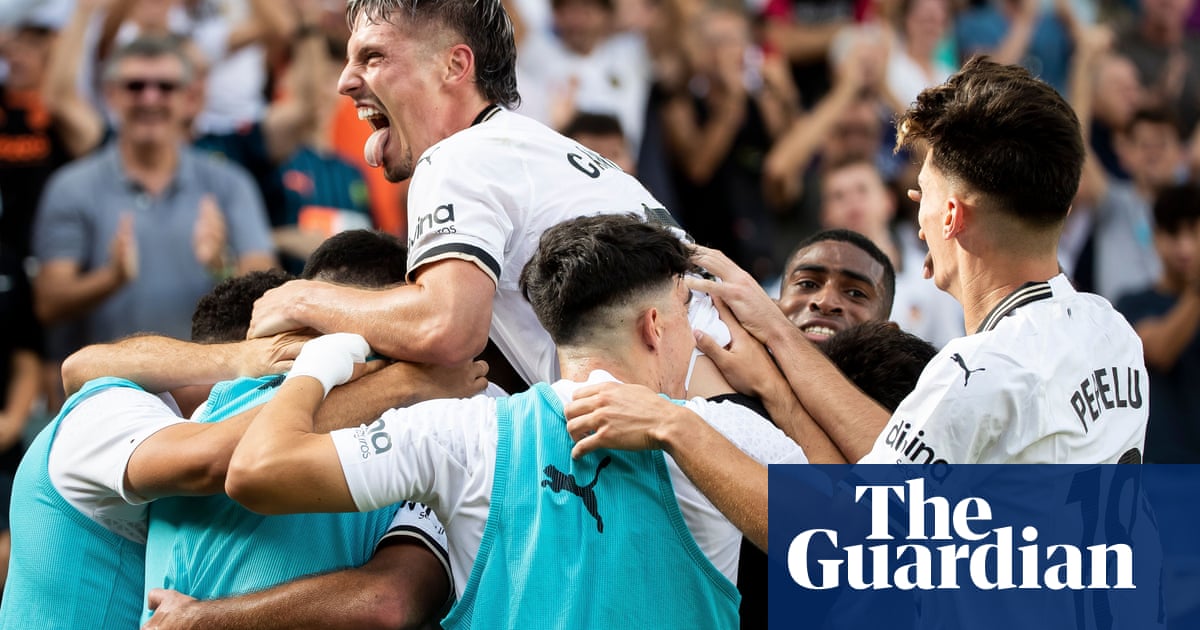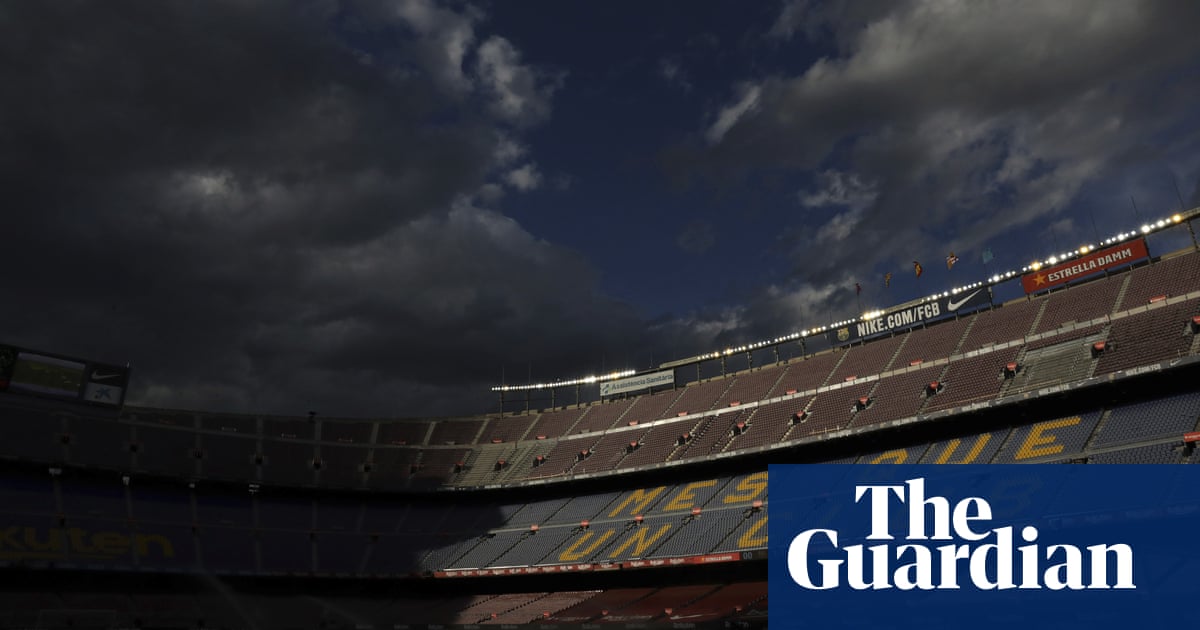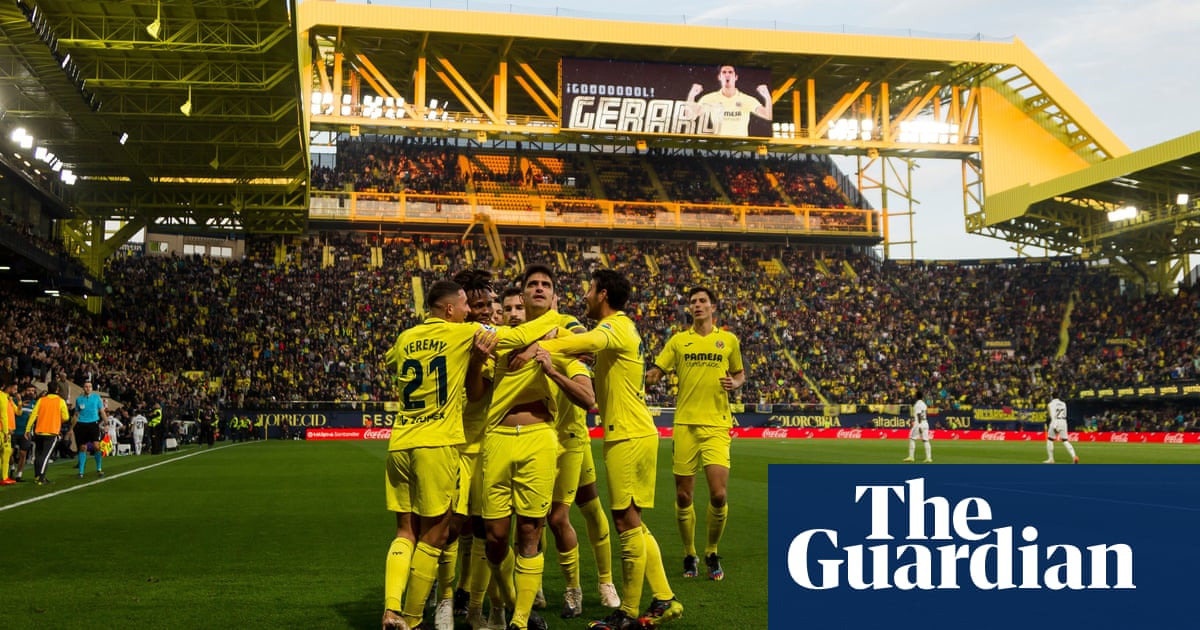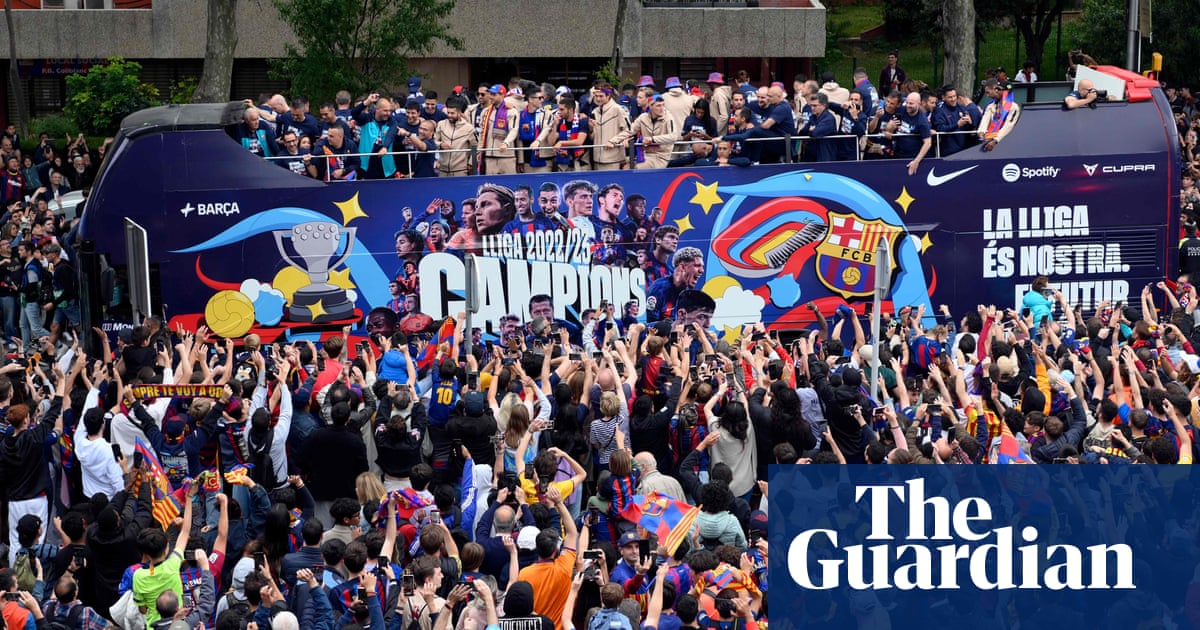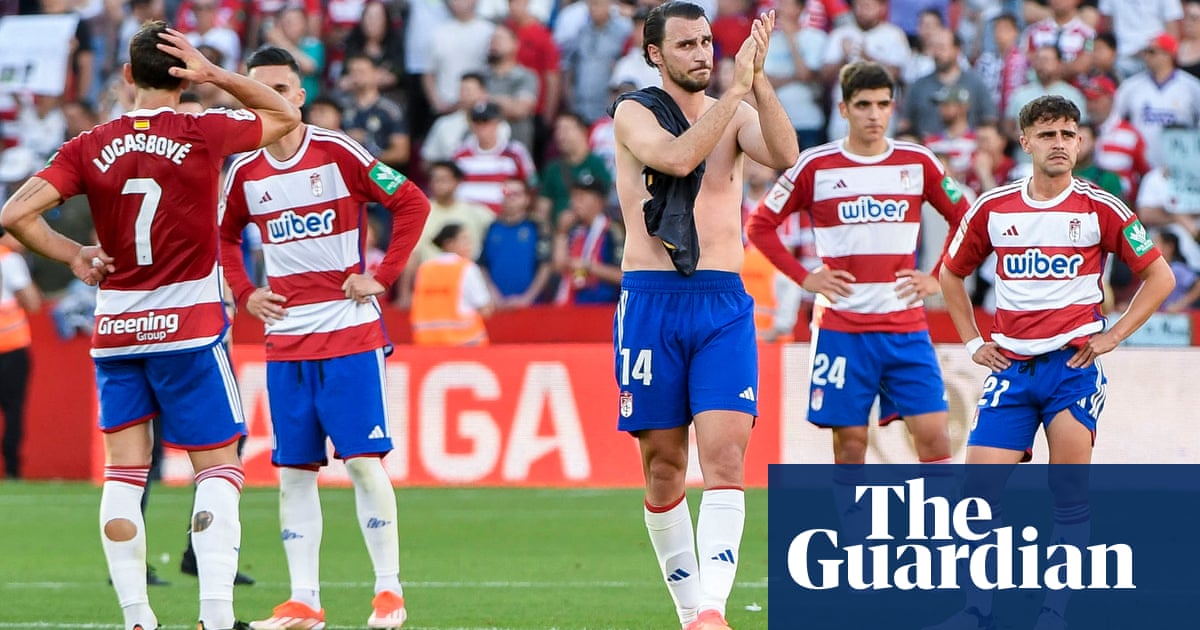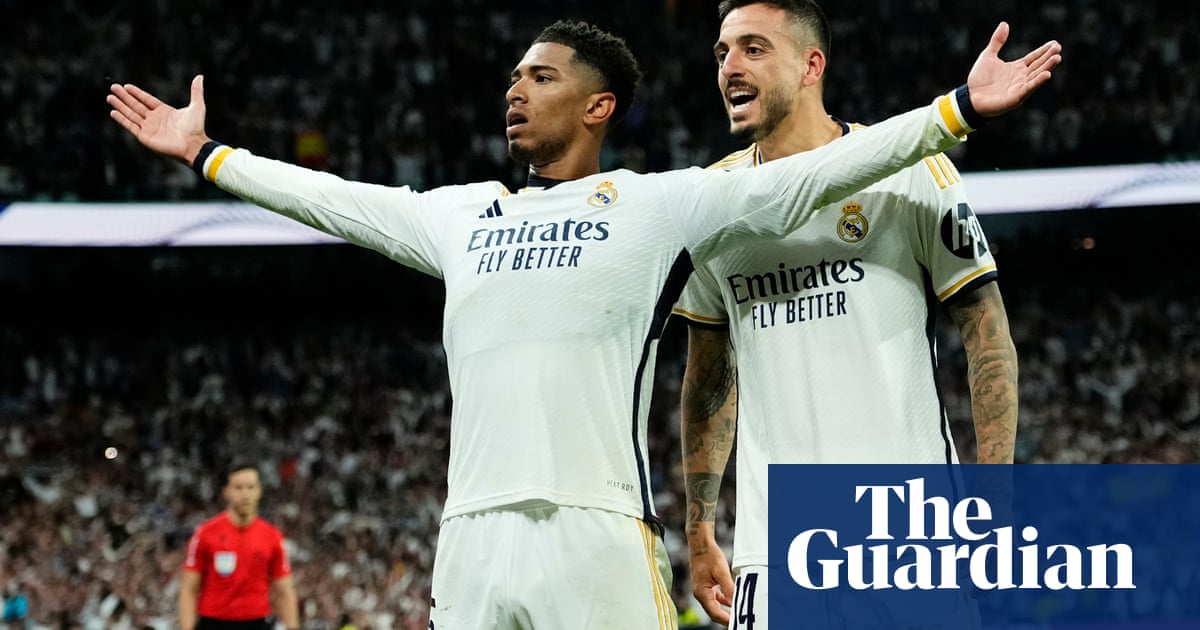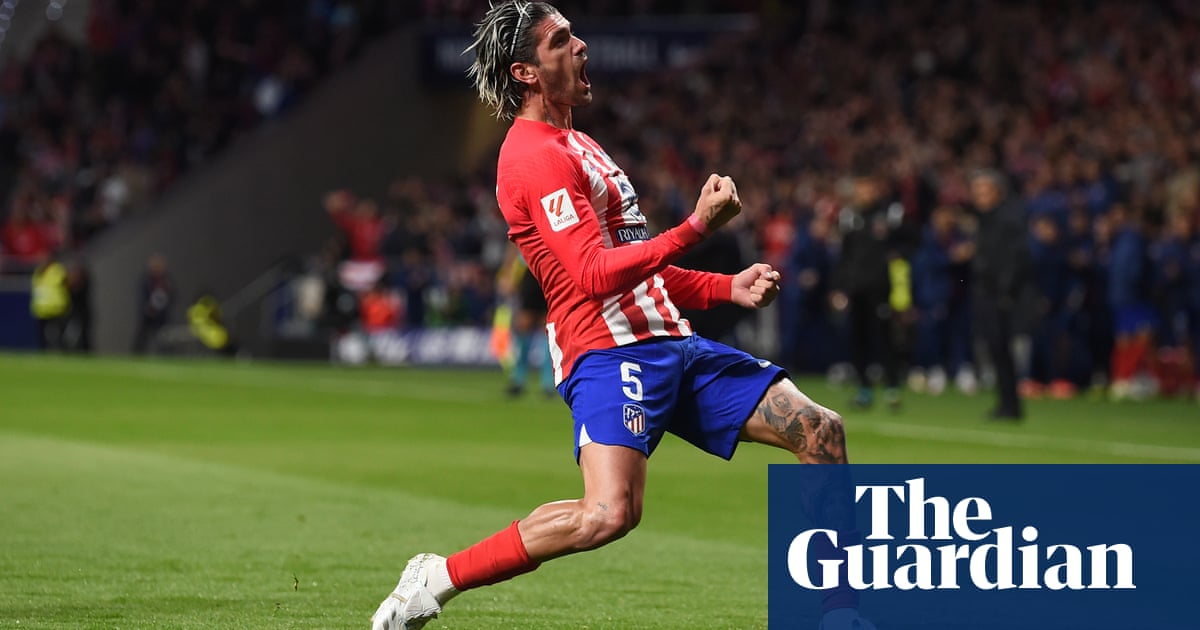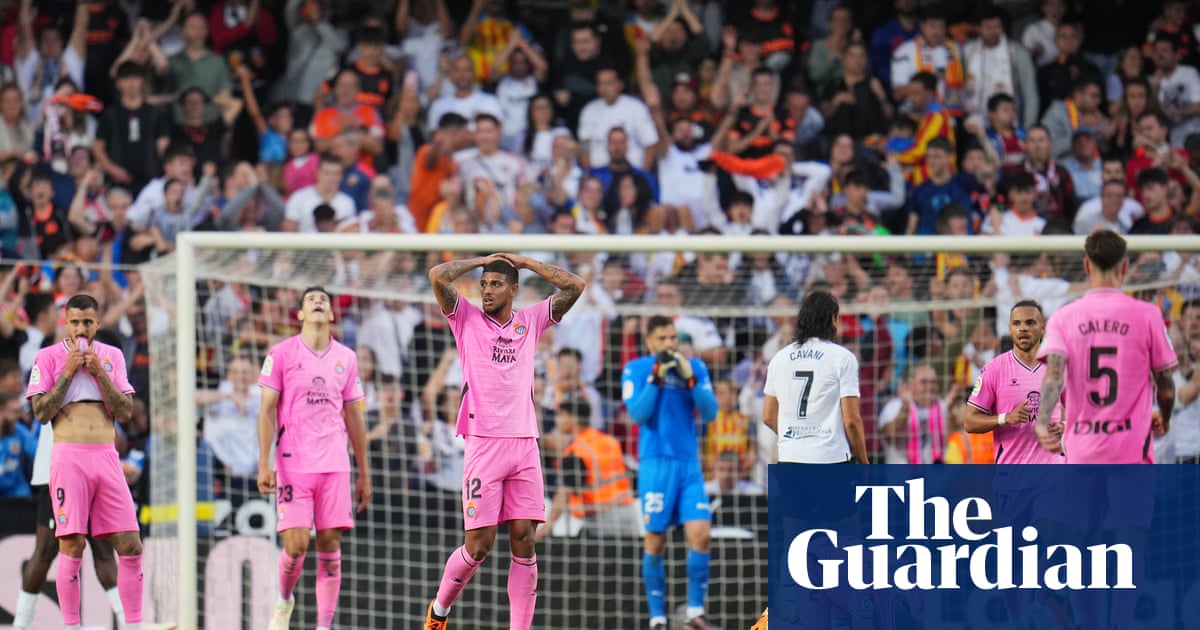
Valencia’s league started six weeks late but at least it was with a win – and a win, coach Rubén Baraja said, “changes everything”. Sometimes all it takes is the smallest, silliest thing, a little luck for there to be life, an explosion: two second-half minutes, two long shots, two deflections, Juanpe in the way, the ball spinning off the defender’s legs into the net, and Mestalla was liberated, if only for a little while.
On Saturday evening goals from Luis Rioja and Dani Gómez defeated Girona, pulled Valencia off the floor and put 40,896 people on their feet. “I wanted to see them smile again,” Baraja said.
It had been a while.
One point from 15 had left Valencia bottom, the last of three winless teams with Las Palmas and Getafe. The fixtures hadn’t been kind: they had played Barcelona, Celta Vigo, Athletic Bilbao, Villarreal and Atlético Madrid, first, second, fourth, fifth and sixth as the weekend began, Baraja insisting “this is not our league” after defeat at the Metropolitano the previous Sunday. But it wasn’t just them: it was also Real Sociedad and Rayo Vallecano and Alaves and the rest. Winless since April, 12 games ago, this was Valencia’s worst run since Gary Neville. They had only ever had one longer, in 1985-86 – and that year they suffered the only relegation in their history.
Now at last they could begin again, the fight to avoid that fate befalling them 40 years on. “We have to show that we want to turn this situation around,” the coach had said, something telling in how often he repeated the same message. Girona might not have been their league either – seventh. Míchel’s team came from their debut in the Champions League, where Valencia used to play – and Baraja insisted that it was a “bit dramatic to be talking ‘finals’ five weeks into the season”, but they had desperately needed something, and fast. “We need a big reaction because we’re at a historic club. This isn’t magic; you don’t wave a wand and everything changes,” he said. As it turned out, Juanpe’s leg would have to do.
Ten minutes into the second half, the ball fell to Rioja 25 yards out, his shot deflecting off Juanpe into the net. Mestalla erupted, the noise rolling off those steep sides as Rioja raced to the corner. They had barely stopped shouting when it happened again, a run that went back 159 days finally ended in 141 seconds, a first win secured six weeks into the season. With one shot on target, Valencia had scored two goals. With three of them, Girona had scored none, Giorgi Mamardashvili making one especially superb save. “It’s my job, you know,” he said. “The first five games were hard but our league starts here, and we’re going for it.” It was Valencia’s first victory at Mestalla since March. “Liberation!” cheered Superdeporte. Marca called it the Resurrection.
“This has to be a mirror to look at ourselves in, a path to follow,” Baraja said. He had seen something, he said: the team he wanted them to be. A bit fortunate, perhaps, a team who had just 32% of the ball and completed only 284 passes, firing off seven shots and not prompting a save, but one that had fought, made life difficult for good opponents; one with an identity, one with a little hope let back in, momentarily freed from the burden. “When you win everything is easier to explain,” Baraja said. “This is a huge step. We have to remember where we came from and who we were up against. Winning changes everything: your feeling, your energy.”
Maybe not quite everything, the underlying reality not going away. “The situation is not chance,” Baraja admitted last week. When he said that Atlético are not Valencia’s league, it hurt but he was right, even if it should be. Those days have gone, investment cut, savings sought through sales, the team inevitably weakened. And if that’s not their league, what is? Over the last five years, the club with eight cups, six leagues, two Champions League finals and two stadiums – one they can’t sell and one they can’t build, the site sitting untouched for 15 years now – have been absent from Europe. Over the last four, they’ve finished 13th, ninth, 16th and ninth.
Baraja is their eighth coach since they sacked Marcelino three games into the 2019-2020 season, although three of those are the same man and even Voro, the club’s very own Mr Wolf, decided that after seven caretaker spells he didn’t want to clean up any more. This summer only two first-division teams spent less money; six second-division teams spent more. And that was a pretty good summer. Rioja came from Alaves for just over a million euros and Enzo Barrenechea joined on loan from Aston Villa. They kept Javi Guerra, whose deal to Atlético had been done. And Mamardashvili, whom they sold to Liverpool for £30m, eventually stayed for one more year on loan – having signed his replacement, Stole Dimitrievski.
While last year they found identity in the academy kids it was hard to avoid the feeling it wouldn’t last for ever, that they had overachieved. It was also some burden for young players to carry, a responsibility that weighs. Saturday’s back four was 21, 20, 22 and 25. There were more immediate problems too: their captain, José Luis Gayà, was injured, so too Mouctar Diakhaby and André Almeida. Hugo Duro, top scorer last season, was out. Worse so was the other striker, Rafa Mir. Accused of sexual assault, Valencia suspended Mir for two games, pending the legal investigation, the captain Pepelu publicly criticising him, the coach backing the captain. In their absence, Gómez – signed free from second-division Levante, having got three in 18 last year – scored his first Primera goal in 888 days.
In the middle of it all is Baraja, trying to hold things together as perhaps only he could: former player, coach, spokesman, loaded with a responsibility that shouldn’t always be his – in the Mir case especially – picking his way through the divide, the fractures, quietly preparing a team with the tools he’s given. A guide, making demands and taking the burden, seeking a message of optimism and obligation. Connecting to the fans, the greatest asset they have. On Saturday that communion was, he said, “brutal”: at the end, supporters who had called for the owner to go home and the board to resign, chanted about how proud they were of their players. He was proud too.
Baraja knows that it is not done, knows that there was fortune with the deflections and in catching Girona post-PSG, eight changes made from the Parc des Prince. He knows that his team are still second bottom and that if that was not their league, Osasuna on Tuesday, then Leganes, Las Palmas and Getafe before the end of October mostly certainly is, and they must win it. Yet he knows too that what they have done now is no little thing, that they can’t let it be; that with players returning, fixtures easing, their league beginning, better times should lie ahead. “This is not something we can come out of in one day or two; it will take some time and if you don’t stand up, it’s even harder,” he said last week. But Valencia had to begin somewhere.
On Saturday at Mestalla they did, the tension released. “This is a starting point,” Baraja said. “The players are happy, they see this is the path. They have suffered, this is their moment. If you can find unity in moments of difficult you can change the direction of a season. They’re our lads and you have to love them in good times and bad: encourage them, push them, support them. What’s nice is winning. When you don’t win, as a coach, you’re worried, you look for a way to improve. When you do, you enjoy it; it changes everything. That’s the way it is. That’s football.”




